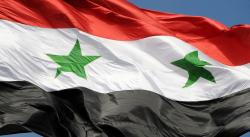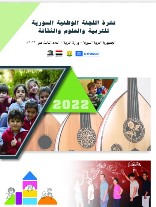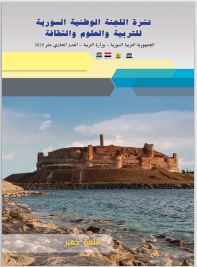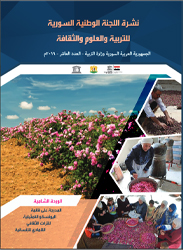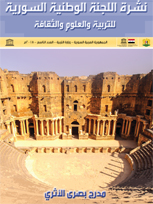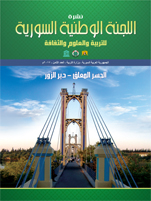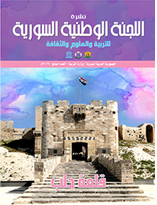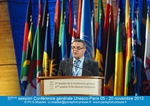A Regional Online Consultation about the Draft Recommendations Concerning the Artificial Intelligence Ethics.
|
The Syrian Arab Republic represented by:
- Dr. Ammar Joukhdar / A Professor at The Department of Artificial Intelligence, Faculty of Informatics, Damascus University, in The Ministry of Higher Education and Scientific Research. - Dr. Ahmed Yaghi / The Head of Scientific Relations' Office at The General Organization of Remote Sensing. - Ghaida Al-Rabdawi / The Higher Institute for Applied Sciences and Technology. Participated in a regional online consultation on August 10th and 11th, 2020; to discuss the draft recommendations regarding artificial intelligence ethics that was prepared by a specialized expert team appointed by The Director General of UNESCO. UNESCO organized this consultation in cooperation with The Ministry of Communications and Information at the Egyptian Arabic Republic, with the participation of /60/ specialists comprising decision-makers, experts, scientists and academics of natural and social sciences, members of the private sector, and civil society working in the field of artificial intelligence, as well as those who are interested in the impact of artificial intelligence on youth and women. This consultation aimed to provide an opportunity to share and exchange experiences in addressing the ethical issues of artificial intelligence in the Arab region and to present opinions and proposals about the draft text of the Artificial intelligence ethics recommendations. The most important points and recommendations that were confirmed as necessary in this consultation: - Adding a glossary to the document. - Indicating that some related documents (such as The Document of Software Engineering Ethics and the Universal Declaration of Human Rights) are an integral part of this document. - Amending some definitions (such as the definition of human dignity that is stated in the document). - Differentiating between Artificial Intelligence systems and the datasets that are used in automatic learning systems, in a way that each of them is dealt with independently when considering privacy, protection, etc. - Replacing the traceability of Artificial Intelligence systems with the ability to explain them due to the difficulty of technical tracking in such systems. - Providing Internet connectivity in all countries, especially in developing countries, when referring to enhancing teaching, education and awareness about the ethics of Artificial Intelligence. - Providing financial, legal, technical and capacity-building support in the developing countries as to enable these countries to ensure accountability, responsibility and privacy in their legal frames. - Protecting the data collected by Artificial Intelligence systems and ensuring their privacy, similar to the laws of protecting citizens' data in European countries. - Never using the data collected by Artificial Intelligence systems for espionage purpose or freedom violation. - Respecting the research and scientific institutions for the scientific credibility and trust when publishing their scientific researches. - The independence of the bodies working in the field of assessment and investigation, in case that the Artificial Intelligence systems caused damage. The text of the draft recommendation will be updated according to these observations and suggestions, and the final draft recommendation will be submitted to member states for approval during the forty-first session of the UNESCO General Conference that will be held in November 2021, and if these recommendations were approved, all member states will be asked to submit four-year periodic reports to clarify the measures taken to implement these recommendations. |











